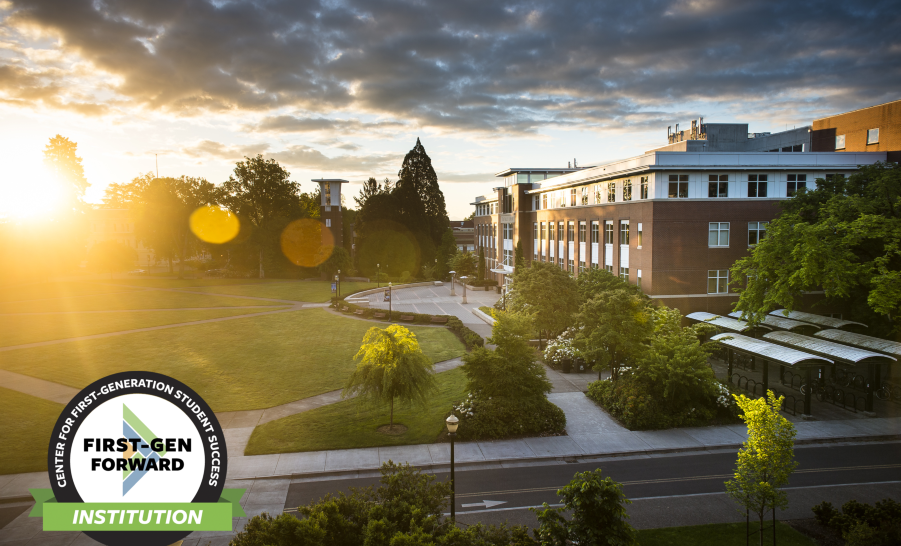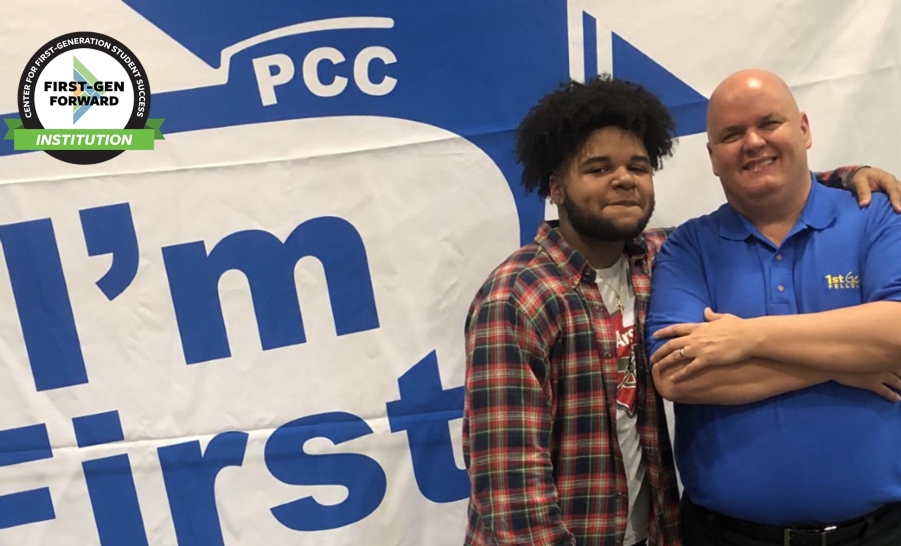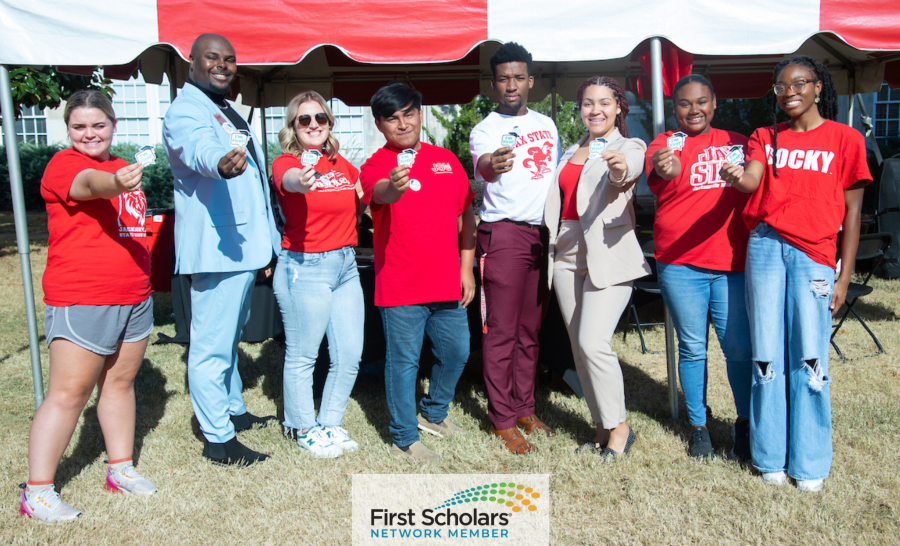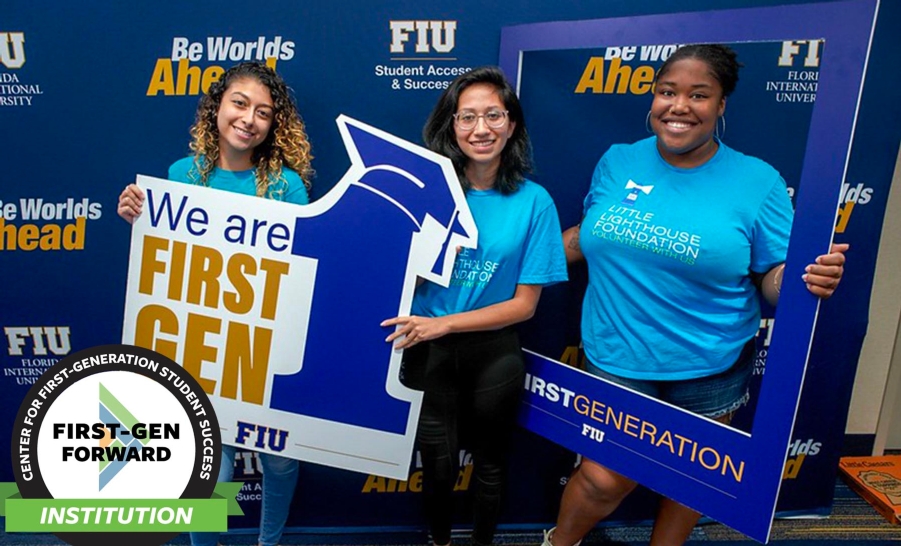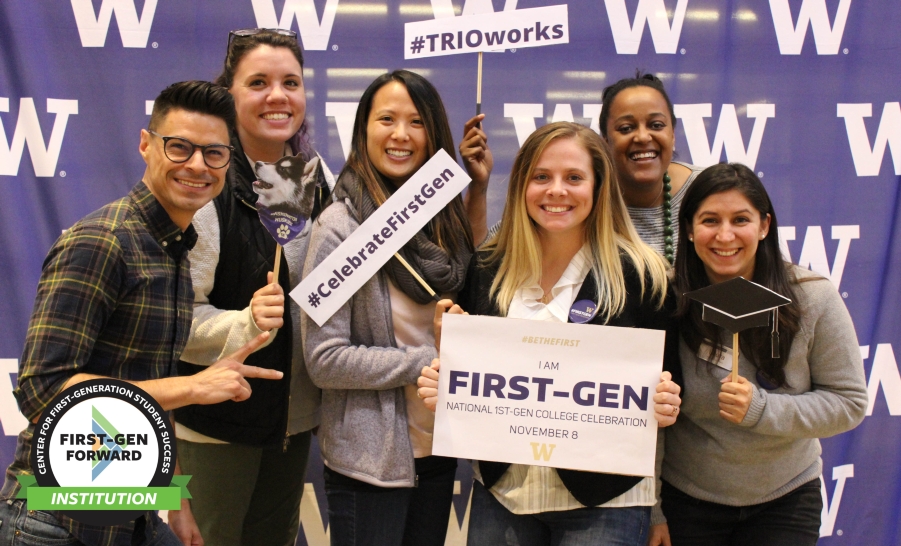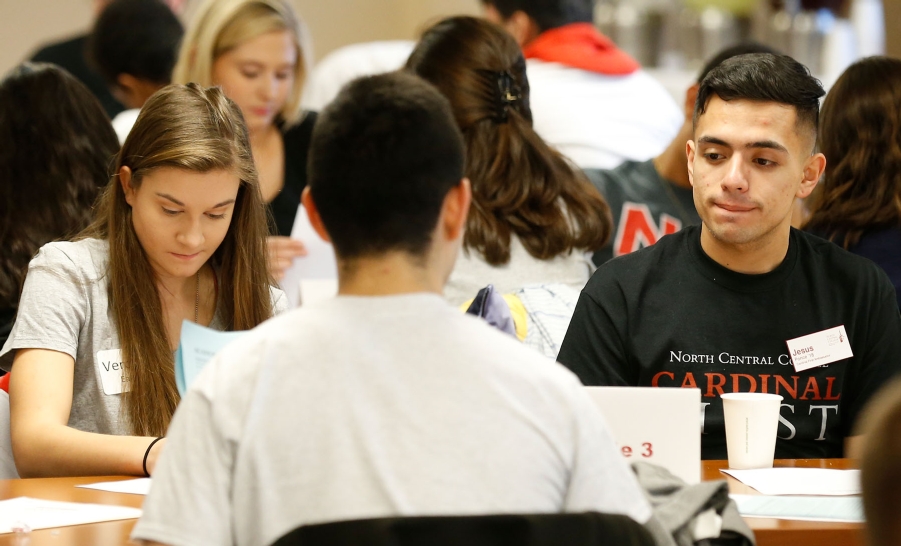One Perspective in a Changing Landscape of First-Gen Work
Pegah Rahmanian, Rhode Island College / FirstGen Forward / March 09, 2024
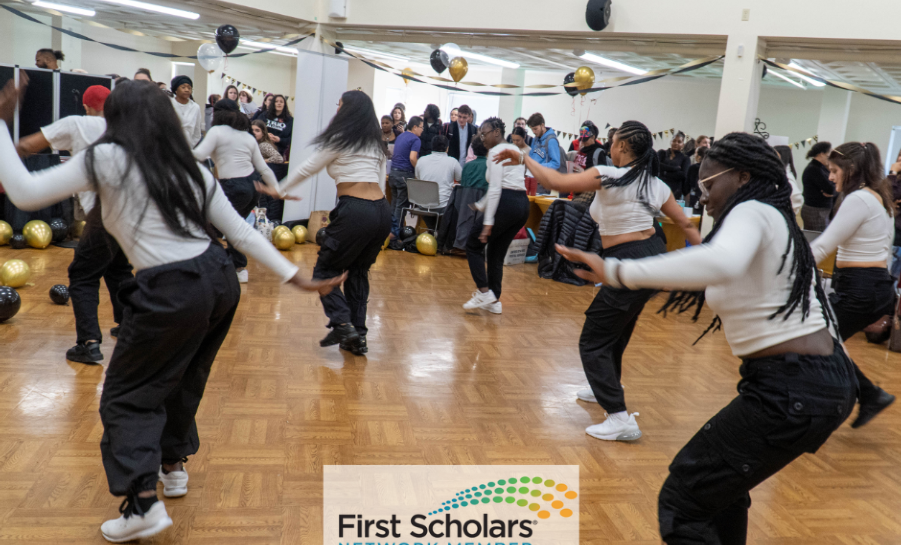
In the breadth of Rhode Island College’s history, a fundamental constant has been a mission to make higher education accessible. Accessible across a variety of socio-economic identifiers such as class, race, gender, and disability.
When we look at generational college access at Rhode Island College over the years and how our services and campus culture have met the need, I think it’s difficult to do that without considering the changing landscape of our student population. A decade ago, our student body was more homogenous, which rendered a more homogenous population of first-generation students that presented with similar experiences and consequently similar needs.
In our recent history, Rhode Island College has seen a dramatic increase of racial diversity on campus. In 2012, roughly 26% of Rhode Island College’s student body was composed of students of color; in 2018, that figure rose to 35%, with nearly half (49%) of incoming freshmen identifying as persons of color. Following that trend, in 2021 the number grew to 40%, more than half of that number identifying as Hispanic/Latinx. The percentage of Latinx students recorded in 2021 was just over 25%, a rate higher than the state of Rhode Islands’ Latinx populations of nearly 18%. In the Fall of 2022, the college announced its designation as a Hispanic Serving Institution (HSI). Inherent in this population is a high percentage of students that identify as immigrants, children of immigrants, or first-gen American born, and this distinction is important when we consider how to reach these students. As a college, we’ve had to spend time considering what it means to have such a dramatic shift in our student population, and culturally reckoning what it looks like to meet the needs of such an experientially varied group of students. While this shift is student body wide, the first-gen experience compounded with these shifting cultural influences has presented as interesting case study in matching the resource/service with the need.
We know that socio-economic status and generational access to college are correlated. The levers of class, citizenship, and race/ethnicity directly impact a students’ experience of college. A decade ago, in an oversimplification of the first-gen work, we were programming for the white working class student who was pursuing education in conflict with familial misconceptions of higher education. Being educated was synonymous with a resistance of where they were from and so the programming was designed to further that analysis and activism without a pretension. Today, so many of our first-gen students come from immigrant/migrant families and again in an oversimplification, pursuing education is seen as upward social mobility, the quintessential pursuit of the American Dream. Our programming has shifted from subversive to celebratory. This year, we hosted a campus-wide First-Gen Celebration for National First-Generation College Celebration Day that was geared toward building community, honoring the courage to trailblaze, and preparing our students to move into the workforce well connected and resourced. While I rejoice in the honoring, affirming, and celebrating of our first-gen communities, I suppose there’s a part of me that laments the loss of the structural critiques and as this work continues to unfold, my hope is that we can find a balance in the two.
